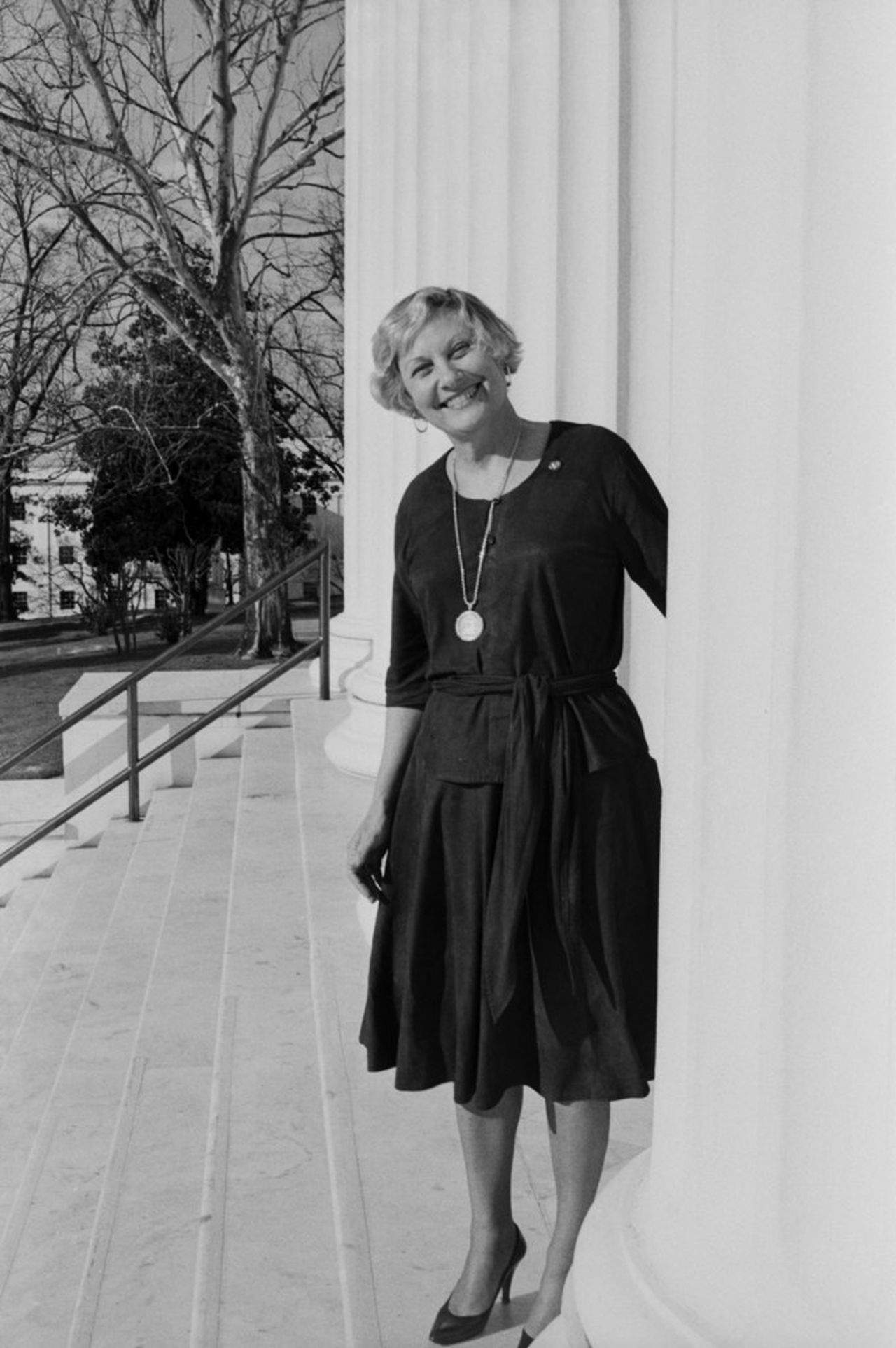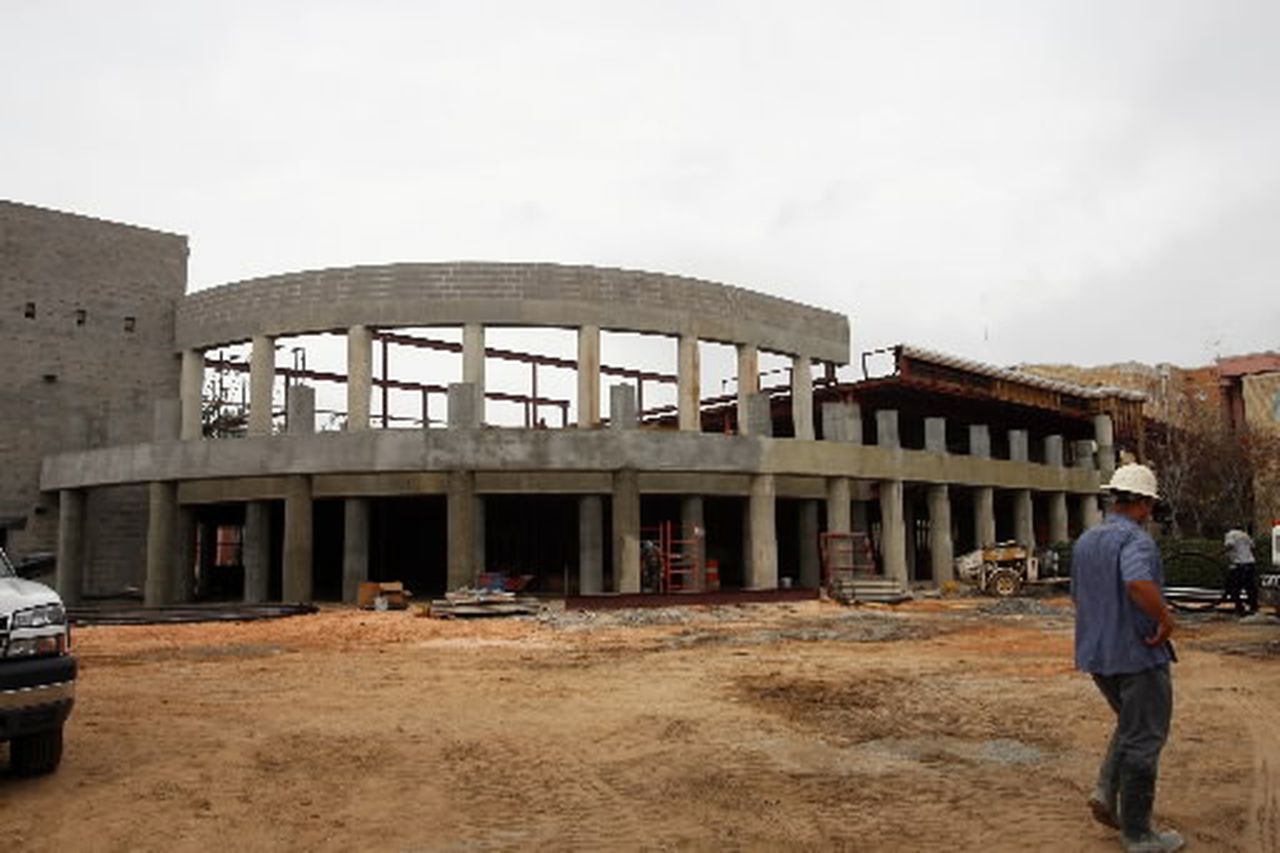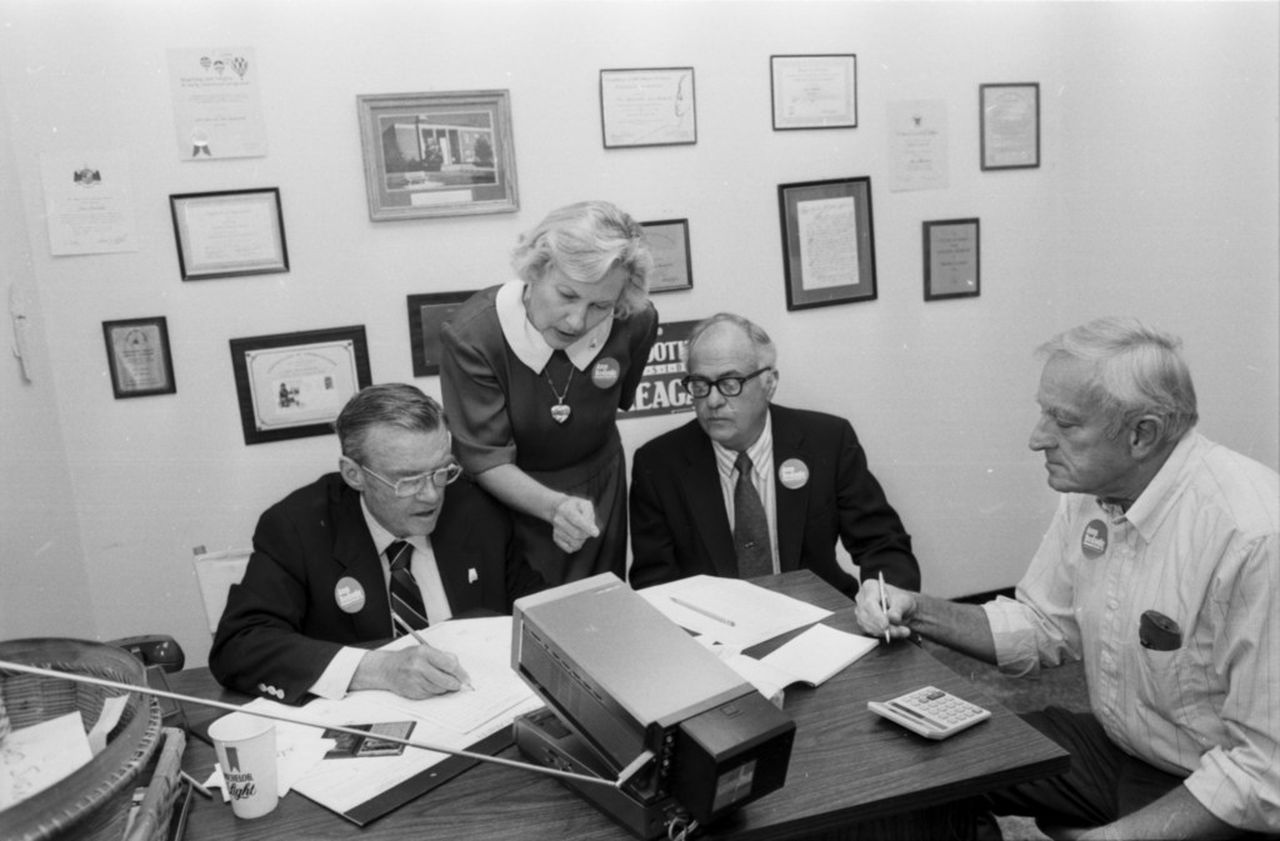Why Ann Bedsole will be honored in Mobile today
Ann Bedsole was already a trendsetter in Alabama politics after having been the first woman in history elected to the Alabama Senate when she met with Gov. George Wallace in 1986, to discuss the possibilities of exploring educational opportunities for gifted children.
That initial request, occurring at the tail end of Wallace’s tenure in office, led to a lifelong quest for Bedsole that included the creation of the Alabama School of Mathematics and Science in Mobile in 1989, and the graduation of its first class in 1993.
Thirty years and 3,000 graduates later, the school will celebrate its anniversary starting with a commemorative “Ann Bedsole Day” today, in honor of its 93-year-old founder.
Bedsole will receive an honorary degree during a ceremony that will include a keynote address by Alabama Gov. Kay Ivey, who volunteered to campaign for Bedsole when she ran for the state senate decades ago.
“The No. 1 priority is to thank her for what she has done for the school,” said John Hoyle, president at the Alabama School of Mathematics and Science for the past five years, and an employee at the school located on Dauphin Street in midtown Mobile for the past 18 years.
“Outside of that, it’s important for our students to understand how grateful the school is for her,” Doyle said. “We think that may spark for them an interest in public service and making sure to know that wherever you are, that one person can make a tremendous difference.”
‘Leave Your Footprint’
Alabama State Senator Ann Bedsole and supporters wait for election results in an office on Azalea Road in Mobile, Alabama during the 1986 general election. Bedsole was the first woman elected to the Alabama Senate, serving from 1983 to 1995. She also served in the Alabama House of Representatives from 1979 to 1983, the first Republican woman to do so. (file photo)
Bedsole’s contribution to public service in Alabama and Mobile might not be known to most of the high school-aged students at the school. But her legacy has been resurrected in recent months, thanks to the December release of a new autobiography, “Leave Your Footprint,” that she wrote while isolated during the pandemic at a home in Monroe County.
“It’s really hard to be by yourself day in and day out and not talk to other people,” Bedsole recounted during an interview with AL.com on Monday. “To keep from going crazy, I sat down and started writing.”
She initially began writing for her children because “they didn’t know much about my early childhood.” Bedsole found that once she started writing, she couldn’t stop and the book – described by some as a “tell it like it is” and “frank conversation” with a former politician – takes readers through the decades and offers a unique lens of Alabama public life.
“Her background and her experience allowed her to connect with anyone,” said Phillip Rawls, a former longtime statehouse reporter with The Associated Press, who covered the Alabama Legislature while Bedsole was in office. “She projected a warm, caring personality whether she was talking to a rich country club member or a single mother wondering how she would feed her family.”

Ann Bedsole, pictured here in 1984, was the first woman ever elected to the Alabama Senate, a position she held from 1983 to 1995. She also served in the Alabama House of Representatives from 1979 to 1983, the first Republican woman to do so. (file photo)
The book covers Bedsole’s life from growing up in rural Jackson to her trendsetting in Alabama politics: In 1978 she became the first Republican woman to win a seat in the Alabama House and followed that up by becoming the first woman ever elected to the Alabama Senate in 1982.
“There were very few women in the State House in those days who weren’t secretaries or assistants,” said Mobile City Councilwoman Gina Gregory, who first met Bedsole in Montgomery when she was a journalist. “So, a female State Senator was to say the least, extraordinary.”
Mobile County Commissioner Connie Hudson called Bedsole “truly a modern-day Renaissance woman whose talent, drive and community spirit have long served as an inspiration for everyone and especially other women.”
Bedsole said she did not realize she was the first woman elected to the state Senate until a reporter informed her about that fact after she won the 1982 election to replace Sonny Callahan, who ran for lieutenant governor that year.
“I did not run to be the first woman (elected to the Senate),” Bedsole said. “I didn’t run from that perspective at all. I ran because education needed help.”
Creating a new school
Indeed, her most significant accomplishments include education-related issues. Atop the list is the creation of a unique public-private arrangement that led to the creation of Alabama’s first magnet school for gifted math and science students in Alabama.
Bedsole was able to get the initial legislation adopted to establish the school during the 1989 legislative session with the assistance of the late state Rep. Steve McMillan of Gulf Shores. McMillan was the dean of the Alabama House until last year when he died from a brain tumor at the age of 80.
At the time of the school’s creation, only about a half dozen gifted schools existed for math and sciences. The school was modeled after similar schools in North Carolina and Louisiana, where students complete their final two or three years of high school by focusing on advanced math and science studies.
The initial start-up funding from the state was $800,000. In her autobiography, Bedsole credited how everyone involved in the school and foundation were “fully engaged and could be counted on” including the board’s first chairman, John Mincy. The group engaged on an aggressive campaign strategy to raise around $10 million, while obtaining key corporate sponsors.
Bedsole credits organizations like Mobile United for backing the project and enabling it to begin in Mobile at a time when lawmakers in other parts of the state wanted the gifted school in their communities, including in Birmingham.
“Mobile United, the mayor and the council … the whole community seemed to want this school,” Bedsole said.
The school was under a tight timeline to get started. And setbacks occurred. The school’s location was initially set for Julius T. Wright School – what is now present-day St. Luke’s Episcopal School in Mobile. The property, at the time, was owned by the University of South Alabama, and Bedsole said then-USA president Frank Whiddon decided, at the last minute of a negotiation, not to sell it to their group.
The school then turned to Plan B, and settled on a site in midtown Mobile which was once the campus of Dauphin United Way Baptist Church. The school purchased the campus for $2 million in 1991.
“Julius T. Wright School seemed ideal, but where we are is more ideal,” said Bedsole. “The (current location) had a big gymnasium and swimming pool and things that Wright didn’t have for recreation.”
Bedsole said the property needed plenty of renovations before classes could start. She said the initial class of 140 juniors often had to wear hard hats as they shuffled from building-to-building, and back to their on-campus dorms.
“It was a monumental task (to get the school started) and we had very little time to do it,” said Bedsole, describing the “do-or-die nature” of developing and opening the school in 1991.
Hoyle said the school routinely enrolls around 260 students a year, has 86 full-time employees and 26 faculty members – many of whom have doctorate degrees.
The students, as they were in the early 1990s, remain some of the best and brightest in Alabama. They come to the school armed with recommendations from counselors and teachers, and a dedication to live away from their families and in a dormitory setting in Mobile.
The school continues to grow, and expansion projects are in the works. A new 32,000-square-foot science research center named after famed Mobillian and scientist E.O. Wilson is under construction and is expected to open in the next 1-1/2 years, according to Hoyle. New dormitories will likely be constructed in the coming years, he said.
Honoring Bedsole

The construction of the new Ann Smith Bedsole Library on the campus of Alabama School of Mathematics and Science in 2007. (file photo)
Bedsole is also proud of the school’s evolvement, and she remains involved as a member of the foundation’s board.
One of the school’s buildings, which houses its library, is named after Bedsole. But former longtime Mobile City Councilwoman Bess Rich believes the entire facility should be named after the former state senator who founded it.
“She was the inspiration for the school and instrumental politically in creating the school and getting it placed in Mobile,” Rich said. “I think many others would suggest the same idea. She’s a force of nature in a tremendously positive manner. She thinks long term and empowers others.”
Bedsole said she disagrees with renaming the entire institution after her, adding that she would be fearful it could lead to misunderstanding of the school’s purpose.
“You want the school for everyone and to feel like it’s open to everyone,” she said. “If you name a school for a woman, it will gradually become a school for women.”
Hoyle said about 55% of the students at the school are female students, while 45% are male.
Even without renaming the school, honoring her seems beyond appropriate to other leaders in Mobile.
“Without question, Ann Bedsole would rank at the top of any list of impactful leaders in Mobile and throughout Southwest Alabama during the past 75 years,” said Jo Bonner, a former congressman and current president at the University of South Alabama. “For years, she was a trailblazer in the political arena and used both her charm — and her political savvy — to become a major player in Montgomery. She literally wrote the book on getting things done when she was in office.”
He said the school she founded has become the “premiere residential public high school” for math, science, and computer sciences in Alabama.
“Without Ann’s determination and vision, this would likely still be a dream,” Bonner said.
